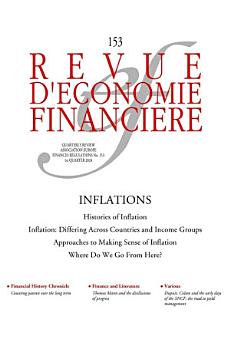Inflations
关于此电子书
This issue features 28 authors and 19 articles and is divided into 4 chapters:
- Histories of inflation
- Inflation: differing across countries and income categories
- Approaches to making sense of inflation
- Where do we go from here?
The articles from the first section show that inflation variety has long been part of the history of facts and theories. The surge in prices that followed the discovery of the New World bears no resemblance to the surges in prices generated by the 20th century’s armed conflicts or energy crises, nor can it be understood in the same way.
The impact of inflation today has differed from country to country, not only because each country’s production system (in particular, its dependence on energy prices) and the distribution of its value chain differ, but also because these countries did not react in the same way before or after the spike in prices. The second part of this issue provides several illustrations.
That leads us back to the various explanations for inflation, not so much to confront them with each other as to understand how they complement each other. Today's inflation is undoubtedly the result (to varying degrees) of supply restrictions, excess demand, structural changes, and distribution conflicts. The simplistic assertion that inflation is always, and everywhere, a monetary phenomenon is therefore true only in a very narrow sense—it is a loss in value of the means of payment. Consequently, no single macroeconomic policy can be applied exclusively or “predominately” when pursuing a return to price stability. On the contrary, it is important to combine the components of these policies, i.e. deepen the principle and forms of coordinating them. The issue concludes with this proposal for a new “policy mix”.
作者简介
Pierre Jacquet est Président du Global Development Network (GDN) et Professeur à l'École nationale des Ponts et Chaussées.





